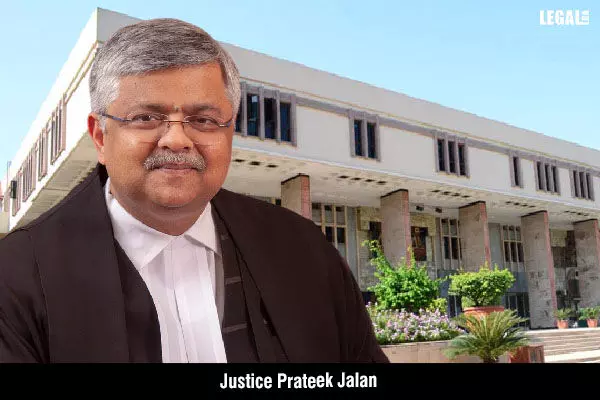- Home
- News
- Articles+
- Aerospace
- Artificial Intelligence
- Agriculture
- Alternate Dispute Resolution
- Arbitration & Mediation
- Banking and Finance
- Bankruptcy
- Book Review
- Bribery & Corruption
- Commercial Litigation
- Competition Law
- Conference Reports
- Consumer Products
- Contract
- Corporate Governance
- Corporate Law
- Covid-19
- Cryptocurrency
- Cybersecurity
- Data Protection
- Defence
- Digital Economy
- E-commerce
- Employment Law
- Energy and Natural Resources
- Entertainment and Sports Law
- Environmental Law
- Environmental, Social, and Governance
- Foreign Direct Investment
- Food and Beverage
- Gaming
- Health Care
- IBC Diaries
- In Focus
- Inclusion & Diversity
- Insurance Law
- Intellectual Property
- International Law
- IP & Tech Era
- Know the Law
- Labour Laws
- Law & Policy and Regulation
- Litigation
- Litigation Funding
- Manufacturing
- Mergers & Acquisitions
- NFTs
- Privacy
- Private Equity
- Project Finance
- Real Estate
- Risk and Compliance
- Student Corner
- Take On Board
- Tax
- Technology Media and Telecom
- Tributes
- Viewpoint
- Zoom In
- Law Firms
- In-House
- Rankings
- E-Magazine
- Legal Era TV
- Events
- Middle East
- Africa
- News
- Articles
- Aerospace
- Artificial Intelligence
- Agriculture
- Alternate Dispute Resolution
- Arbitration & Mediation
- Banking and Finance
- Bankruptcy
- Book Review
- Bribery & Corruption
- Commercial Litigation
- Competition Law
- Conference Reports
- Consumer Products
- Contract
- Corporate Governance
- Corporate Law
- Covid-19
- Cryptocurrency
- Cybersecurity
- Data Protection
- Defence
- Digital Economy
- E-commerce
- Employment Law
- Energy and Natural Resources
- Entertainment and Sports Law
- Environmental Law
- Environmental, Social, and Governance
- Foreign Direct Investment
- Food and Beverage
- Gaming
- Health Care
- IBC Diaries
- In Focus
- Inclusion & Diversity
- Insurance Law
- Intellectual Property
- International Law
- IP & Tech Era
- Know the Law
- Labour Laws
- Law & Policy and Regulation
- Litigation
- Litigation Funding
- Manufacturing
- Mergers & Acquisitions
- NFTs
- Privacy
- Private Equity
- Project Finance
- Real Estate
- Risk and Compliance
- Student Corner
- Take On Board
- Tax
- Technology Media and Telecom
- Tributes
- Viewpoint
- Zoom In
- Law Firms
- In-House
- Rankings
- E-Magazine
- Legal Era TV
- Events
- Middle East
- Africa
Does Non-Filing Of 'Statement Of Truth' With Petition Under Section 34 Of A&C Act Invalidate The Filing? Delhi High Court Refers To Larger Bench

Does Non-Filing Of 'Statement Of Truth' With Petition Under Section 34 Of A&C Act Invalidate The Filing? Delhi High Court Refers To Larger Bench
Justice Prateek Jalan of the Delhi High Court has referred the question of whether the failure to file a statement of truth with a challenge petition renders the filing invalid to a larger bench due to conflicting opinions expressed by two Division Benches.
The impugned award was passed on July 24, 2023, which prompted the petitioner to contest it under Section 34 on October 27, 2023. However, the initial petition lacked a statement of truth. This deficiency was rectified in the subsequent filing on December 6, 2023.
The respondent raised objections regarding the petition's maintainability based on the following grounds:
i. The original petition lacked a statement of truth, rendering it a non-est filing.
ii. As the original filing was deemed non-est, the date of the subsequent filing would be deemed for limitation purposes. However, this occurred after the expiration of the 120-day period stipulated under Section 34(3) of the Arbitration and Conciliation Act.
The petitioner presented the following counter-arguments:
i. The absence of a statement of truth is merely a procedural flaw, and thus, the effective filing date should remain the date of the original filing.
The court considered two Division Bench judgments, ONGC v. Sai Rama Engineering Enterprises and ONGC v. Planetcast Technologies Ltd., which presented conflicting views on the requirement of a Statement of Truth in a Section 34 petition. In the Sai Rama case, it was held that the absence of a Statement of Truth is a procedural defect that does not render the filing non-est, while the Planetcast case emphasized the mandatory nature of the Statement of Truth requirement and deemed filings without it as non-est.
Recognizing the conflicting interpretations, the court acknowledged the necessity for authoritative clarification on the matter. Consequently, it opted to refer the issue to a bench comprising two or more judges for resolution and directed the registry to present it before the acting chief justice for referral to an appropriate bench.



